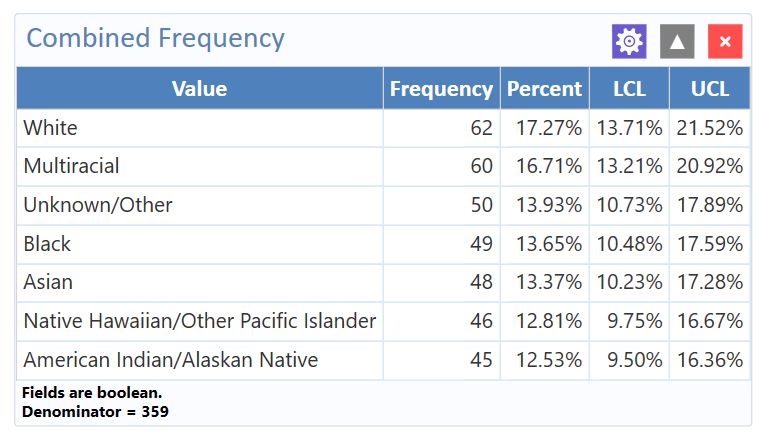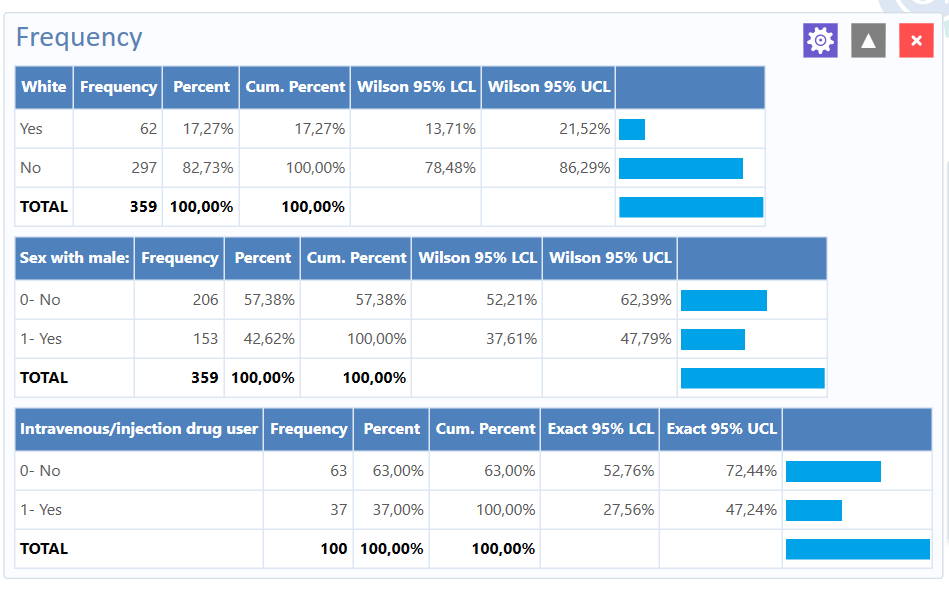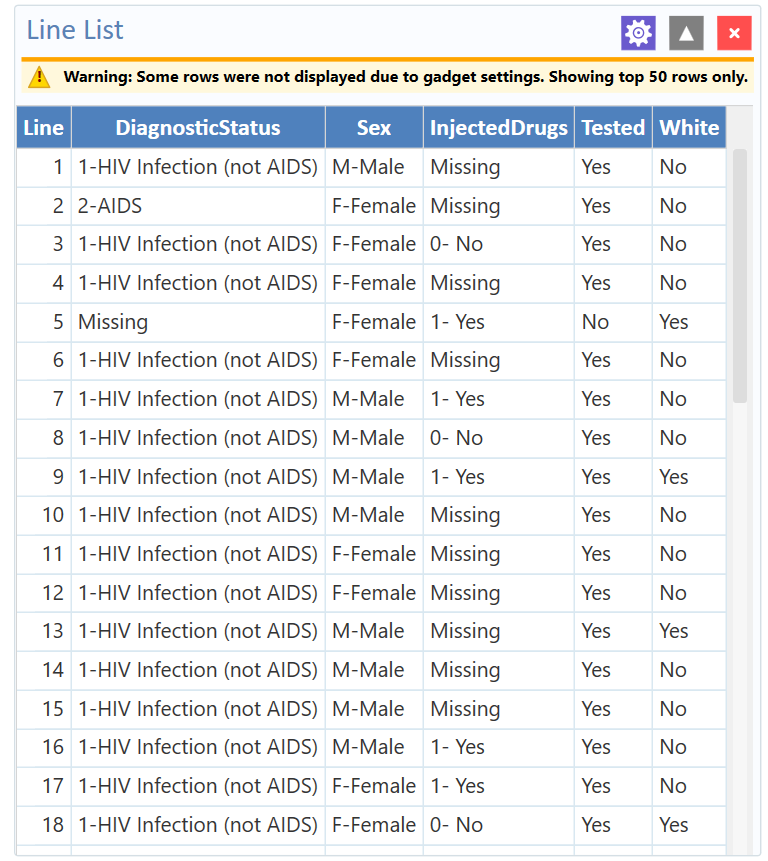For a better understanding of how the health factors of the population develop and form, it is necessary to conduct epidemiological studies. Epidemiological methods enable healthcare to obtain a large amount of knowledge necessary for the prevention and treatment of diseases. The ongoing process of spreading HIV infection is one of the main risks for the development of society and States. Of particular importance, in this case, is the frequency of occurrence of this disease in drug-addicted people. The testable hypothesis for this work states that socioeconomic status is correlated with HIV/AIDS in white males who are injection drug users.
Diseases such as the human immunity virus and acquired immune deficiency syndrome have the potential to spread very rapidly among drug addicts. Recently, there has been a tendency to reduce the use of needles. As a result, the spread of the disease among drug addicts is gradually stabilizing. As can be seen from Tables 1, 2 and 3, 4 the human immunity virus is spread relatively similar between men and women who resorted to the use of injected drugs. Addiction to narcotic substances becomes the main problem in treatment since withdrawal from them causes withdrawal. In such cases, it is necessary to prescribe complex therapy under the constant supervision of doctors. Antiretroviral therapy is currently very widespread. An important addition to treatment is working with a specialist in the field of psychology. This is due to the fact that the process of abandoning addiction is already quite difficult, but news about HIV can also seriously negatively affect the psychological health of the patient.



